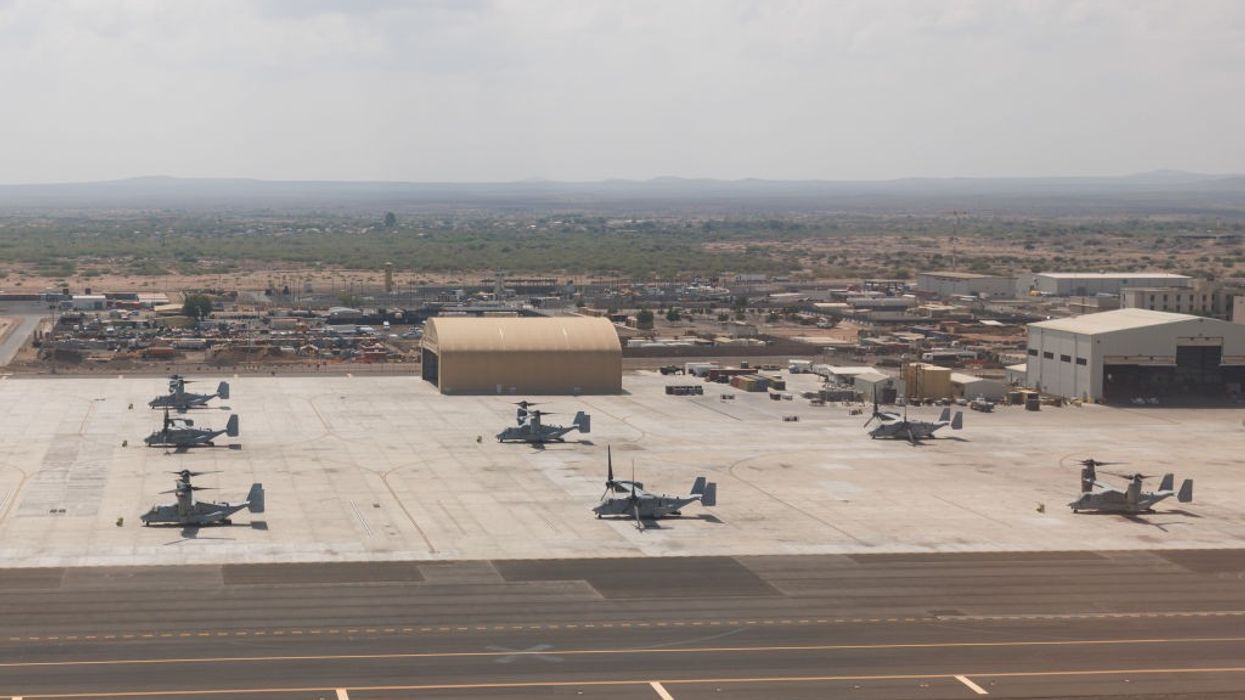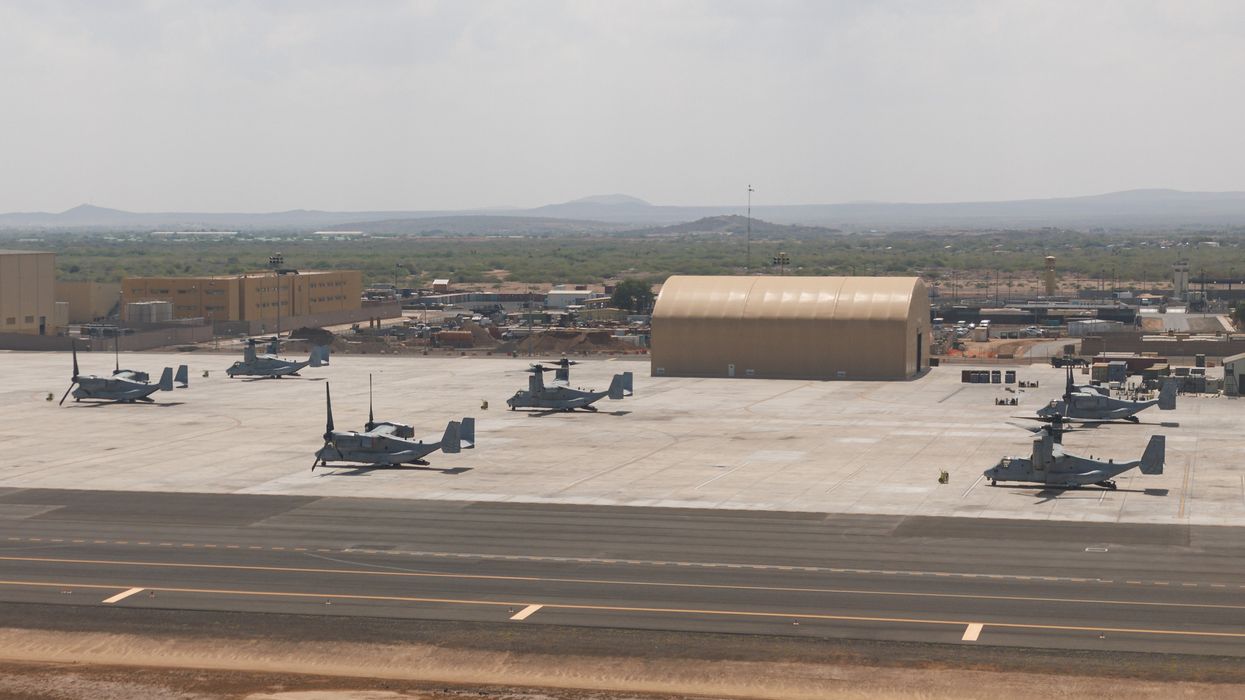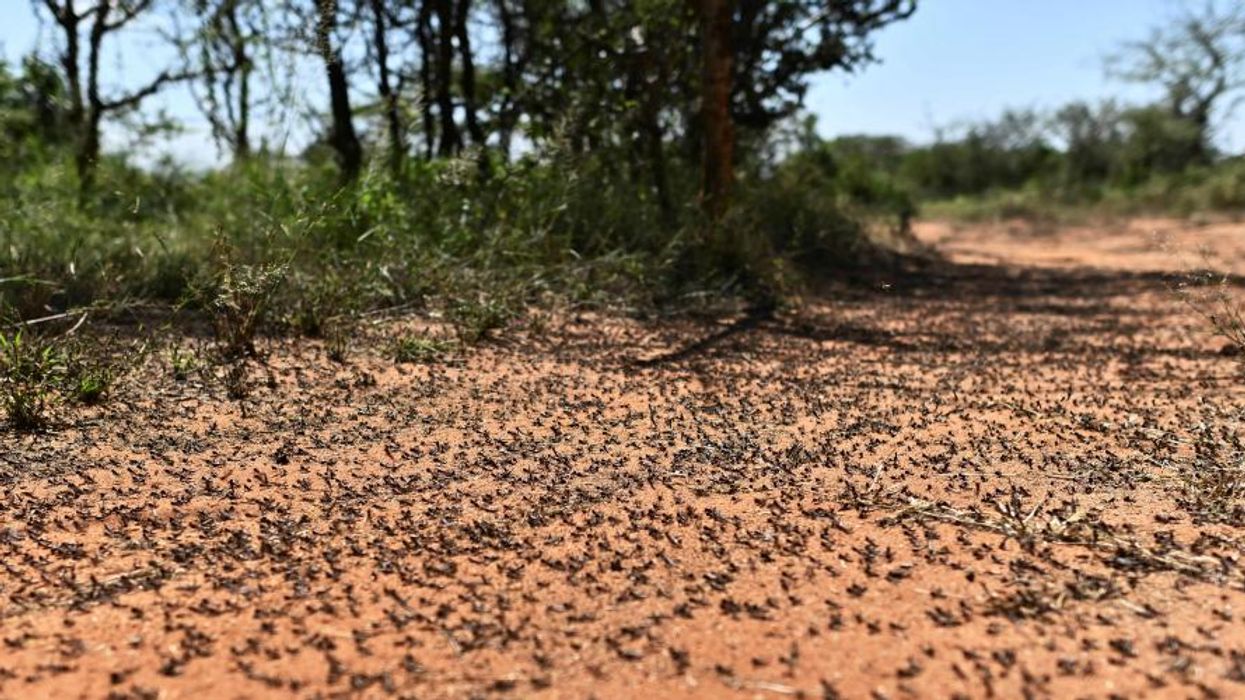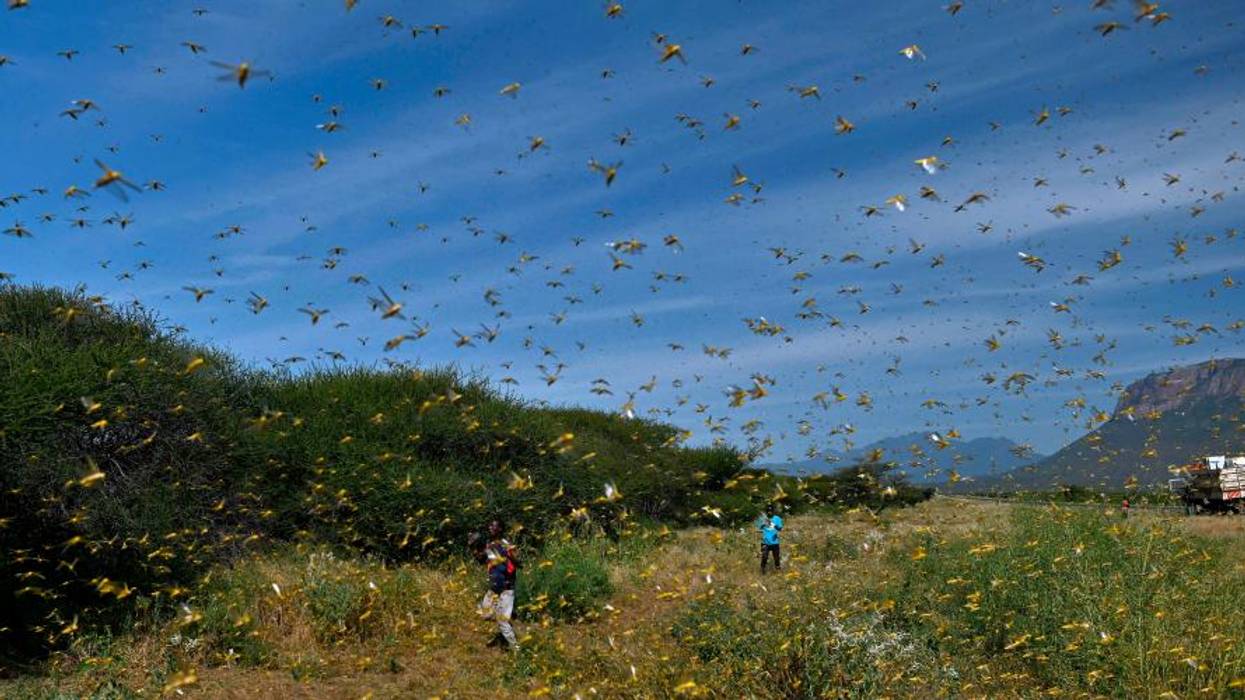Supreme Court OKs Trump 'Third Country' Deportation of Men Held in Desert Shipping Container
Justice Sonia Sotomayor warned in a dissent to a previous ruling on the case that the decision exposes "thousands to the risk of torture or death."
The Supreme Court on Thursday cleared the way for the Trump administration to send eight men deported from the United States and currently in limbo on a U.S. military base in Djibouti to South Sudan, where only one of the deportees is from, under a policy of fast-tracking deportations to third countries.
In an apparent 7-2 unsigned decision, with liberal Justices Sonia Sotomayor and Ketanji Brown Jackson dissenting, the high court lifted an order from U.S. District Judge Brian Murphy blocking the deportation of the men—who are originally from Cuba, Laos, Mexico, Myanmar, South Korea, South Sudan, and Vietnam—to war-torn South Sudan, one of the world's most dangerous countries.
NEW: The U.S. Supreme Court allows the Trump administration to send people subject to deportation to countries they have no connection with that are so dangerous the Trump administration advises Americans not to travel there. The case involves eight men the Trump regime wants to send to South Sudan.
[image or embed]
— Chris Geidner (@chrisgeidner.bsky.social) July 3, 2025 at 2:29 PM
The men, who have all been convicted of serious crimes in the United States, have been detained for six weeks at Camp Lemonnier, a U.S. base in the Horn of Africa nation of Djibouti. They have been nearly constantly shackled and are under constant guard in a shipping container. The container reportedly is equipped with air conditioning.
Neither the United States nor South Sudan has explained what will happen to the men upon their arrival in the East African nation.
Last month, the Supreme Court temporarily lifted Murphy's preliminary injunction, which had enabled migrants to file claims of persecution before their deportation to counties where they have no ties in a highly controversial process called third-country removal.
Dissenting in that ruling, Sotomayor wrote that the ruling exposes "thousands to the risk of torture or death."
The administration then accused Murphy of defying the high court's ruling by insisting that the eight men still could not be sent to South Sudan and asked the justices for the clarification that came with Thursday's decision.
"They're now subject to imminent deportation to war torn South Sudan, a place where they have no ties and where it is possible, if not probable, that they will be arrested and detained upon arrival," Trina Realmuto, an attorney for the men, told Politico Thursday. "This ruling is condoning lawlessness."



